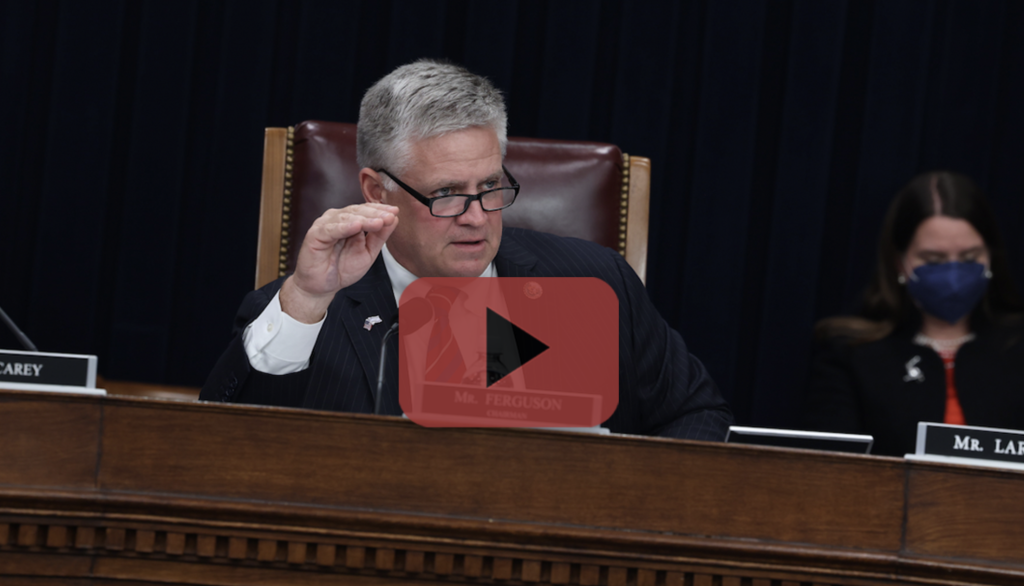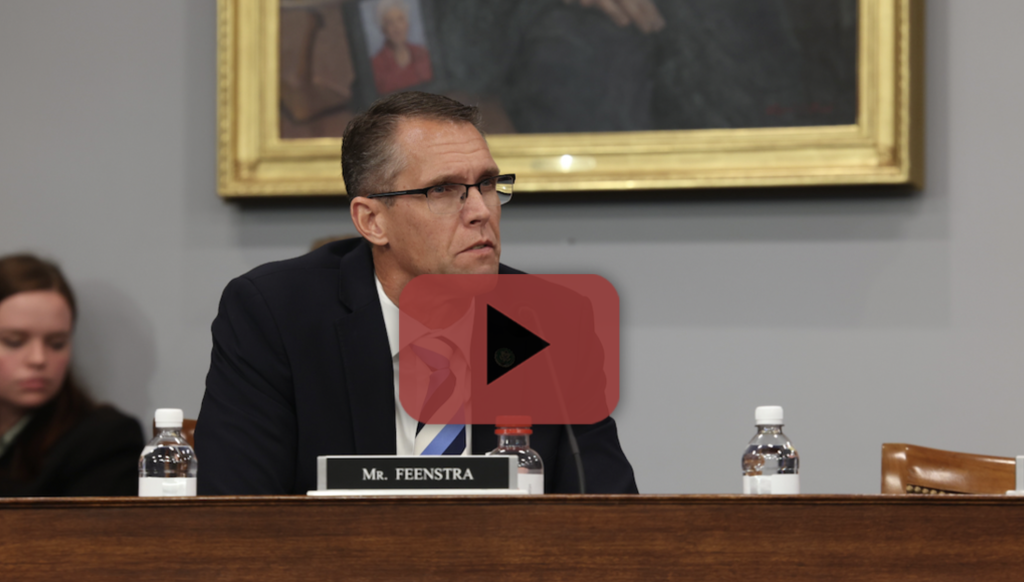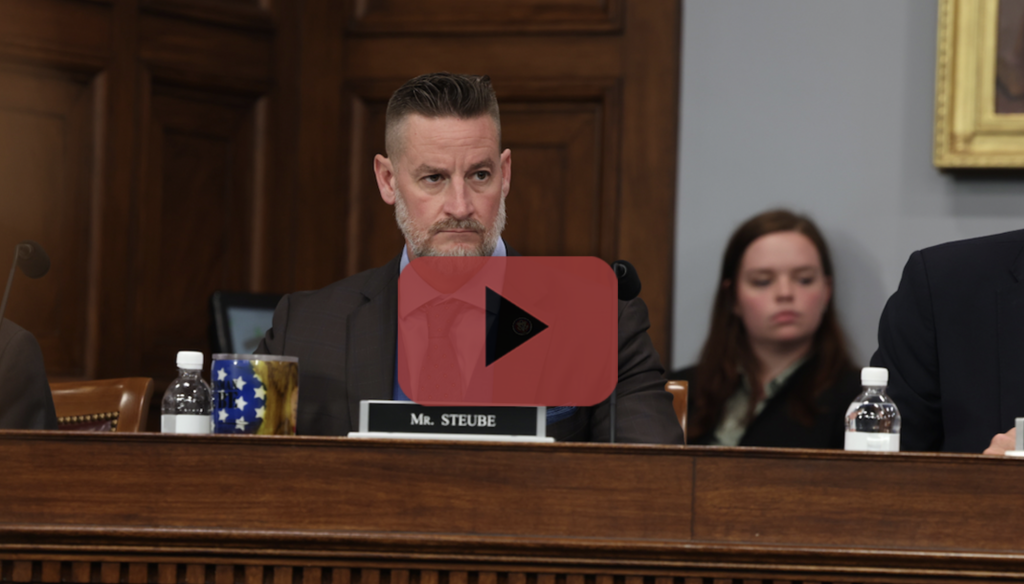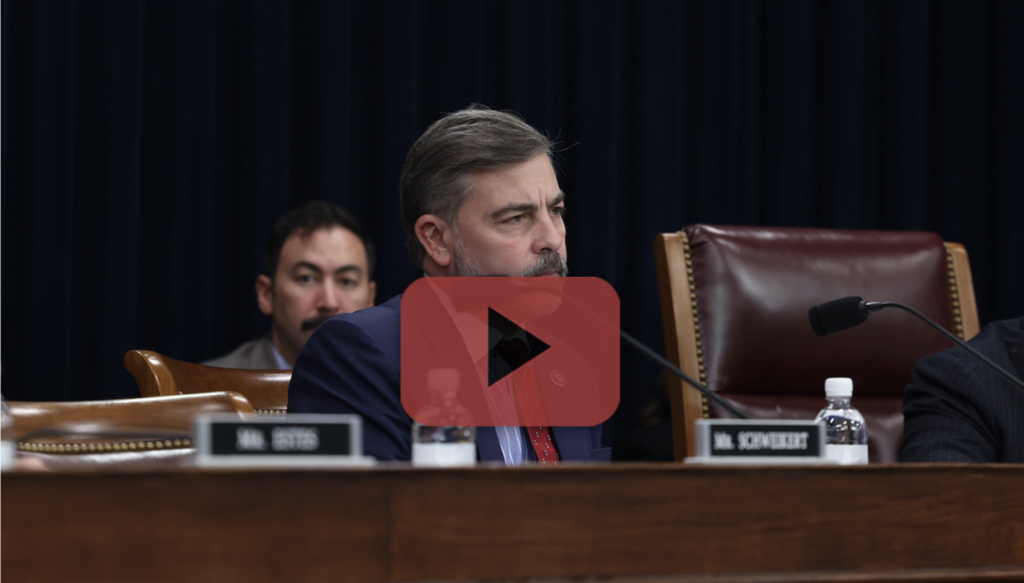WASHINGTON – With $16 billion in improper payments over the last five years, beneficiaries living on fixed incomes who rely on Social Security for their livelihood face challenging outcomes where they may receive less than they are owed or are overpaid and hit with bills to recoup those payments years later. During a Ways and Means Social Security Subcommittee hearing on improper payments, Ways and Means members urged the Social Security Administration (SSA) to use the tools it already has at its disposal and implement long outstanding recommendations from the Government Accountability Office and SSA’s Office of Inspector General to stop improper payments that hurt beneficiaries and taxpayers alike.
As witnesses told the Subcommittee, a major contributor to overpayments is SSA’s continued reliance on outdated manual procedures which takes months to process beneficiaries’ wage information. To fix this issue, SSA should finally follow the law Congress passed eight years ago and work with private sector entities to fight improper payments.
Eight Years Later: Social Security Administration Is Still Failing to Implement the Law to Reduce Improper Payments
In 2015, Congress granted SSA the authority to work with private payroll companies to get accurate payroll data with the goal of reducing improper payments. Eight years later, SSA has yet to set up the payroll information exchange (PIE) mandated by the law, hurting beneficiaries still getting checks for the wrong amount and wasting taxpayer money. When Social Security Subcommittee Chairman Drew Ferguson (GA-03) tried to get a timeline for when SSA would finally follow the law, he got little in response.
Rep. Ferguson: “What do you think that timeline is? It just seems eight years on like something’s broken in the system to go from start to eight years, and we still don’t have the program. So how much longer is this going to take?”
Social Security Acting Commissioner Kijakazi: “So we anticipate by the end of the year, we should have the publication of the notice of proposed rulemaking…”
…
Rep. Ferguson: “So you think this program could be operational by the end of the year, or just the rule?”
Acting Commissioner Kijakazi: “The rule.”
Social Security Takes An Average of Five Months to Correct Overpayments
Not only does Social Security send checks in the wrong amount to millions of Americans, SSA moves at a glacial pace to fix the problem. Even when overpaid individuals receiving disability insurance self-report their correct income, it can still take months to correct the error. The result: Americans have to spend more time and SSA wastes more taxpayer money resolving improper payments. Rep. Randy Feenstra (IA-04) spoke up on behalf of his constituents and asked how Social Security could shorten that timeline.
Commissioner Kijakazi: “The intent of the payroll information exchange is just that – to have the earnings of beneficiaries reported automatically and then the adjustment to benefits can be made timely automatically. That is what we are trying to put in place… But this is one way to reduce that time line between when a change occurs, and when an adjustment is made.”
Rep. Feenstra: “I urge you, if possible, to audit and try to figure out how you can narrow that timeframe because on the other end is somebody that is worried about that over- or underpayment, whatever they’re owed or not owed.”
No One At Social Security Is Being Held Accountable for Wasting Taxpayer Money
No matter which metric is used, Social Security improper payments waste billions of dollars. In the last five years alone, Social Security has overpaid $13 billion, and in 2022 alone, sent out $2 billion in overpayments at the expense of taxpayers. Rep. Greg Steube (FL-17) asked who at SSA was responsible for this colossal waste of taxpayer money. Instead of a straight answer, he got bureaucratic-speak for “No one.”
Rep. Steube: “Who is being held accountable for the mistakes that the Social Security Administration is making?”
Acting Commissioner Kijakazi: “We are holding ourselves accountable.”
“Seems Like An Awful Lot”: One Million Americans a Year Affected by Social Security’s Improper Payment Highlights Need for Reform
In both fiscal year 2022 and 2023, about one million Americans received notice they had received too much in their Social Security checks. The large number belies the problem with SSA’s antiquated manual processes that rely on beneficiaries to self-report their income, instead of taking advantage of technology to send checks for the right amount to more Americans. As Rep. Mike Carey (OH-15) highlighted, these numbers show that Social Security must do more to reduce the number of Americans hit with a surprise overpayment notice.
Rep. Carey: “How many people are receiving overpayment notices in a year? Any idea?”
Acting Commissioner Kijakazi: “The number of beneficiaries experiencing an overpayment each year for [fiscal year ] FY 2022 – 1,028,389. For FY 2023 – 989,912.”
Rep. Carey: “989,912 individuals were getting these letters in the mail saying that there was an overpayment and that they needed to contact you guys and set up a payment plan?…Seems like an awful lot.”




